Playing board games in older age can be especially important, as numerous studies have shown that it plays a significant role in keeping the mind sharp and maintaining cognitive abilities. Regular playing of board games contributes to improvements in brain function and may reduce the risk of dementia in older age. Board games not only strengthen memory and problem-solving skills but also improve social interactions, thereby reducing the feeling of loneliness among older adults. Additionally, board games provide an entertaining and communal activity that helps older people actively engage in a social environment, thus supporting emotional well-being and a positive outlook on life.
Board Games for the Elderly: A Guide
Of course, the role of grandparents is also very important, but this time we won't focus on that. We would like to recommend board games that, according to experience, are often enjoyed by the older generation, so it might be worth trying them out in your own families. And don't forget, this isn't just about your older parents or grandparents; it's also about you, because playing these games can bring a whole new quality to your relationships.
Here are five popular board games that are particularly recommended for older players:
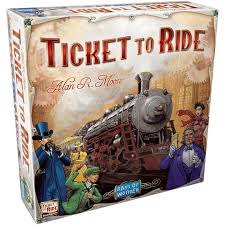
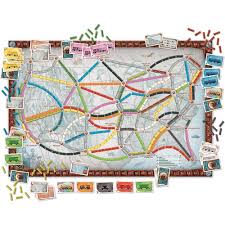
Ticket to Ride
Ticket to Ride is a true classic and an excellent introductory game, as its rules are not too complex, yet there is plenty to think about.
Players collect train cards to claim railway routes on the board, aiming to connect cities based on their destination tickets. Longer routes and completed tickets score more points, but incomplete routes result in penalties. The player with the most points at the end wins the game.
Tools
1 game board, 240 train car pieces, 110 train cards, 30 destination ticket cards, 5 scoring markers, and a rulebook.
Skills Developed
The game enhances strategic planning, decision-making, route optimization, and spatial reasoning, as players must carefully choose and connect railway routes while blocking opponents.
Carcassonne will be featured here once we add it to our collection!
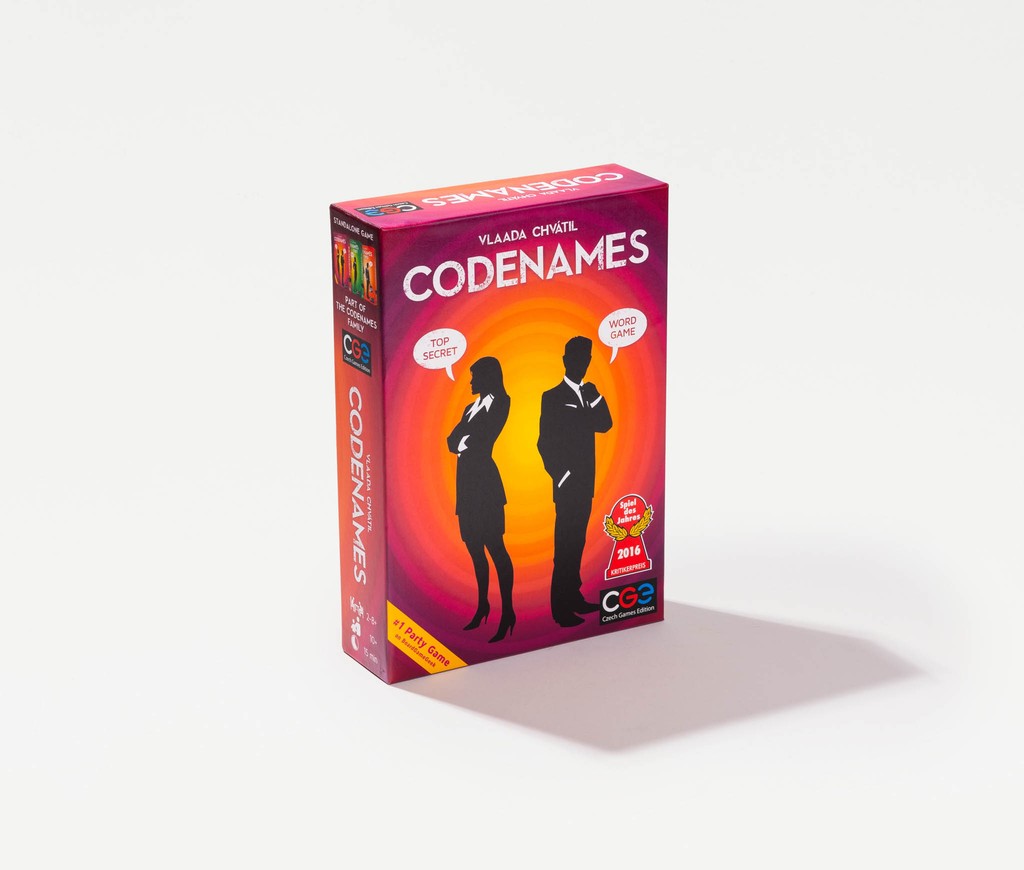
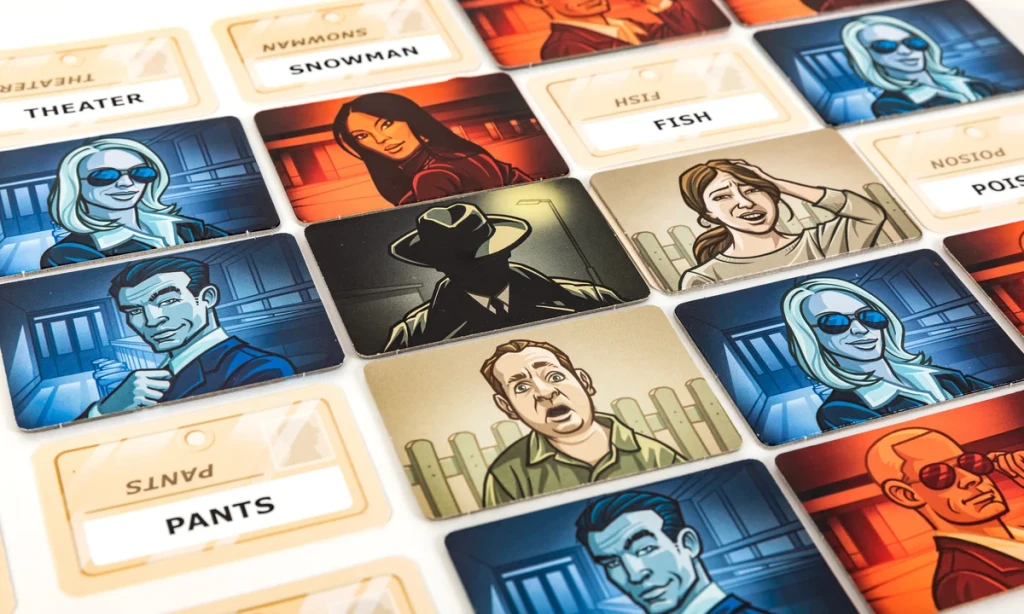
Codenames
Das klassische Codenames – ein Teamspiel voller kluger Assoziationen.
Tools
Eine Standard-Codenames-Box enthält 200 doppelseitige Wortkarten, 40 Schlüsselkarten, 16 Agentenkarten (rot und blau), 1 Attentäterkarte, 7 Unbeteiligtenkarten, eine Sanduhr und ein Regelheft
Skills Developed
Das Spiel fördert kritisches Denken, Wortassoziation, Teamarbeit, Deduktion und Kommunikationsfähigkeiten.
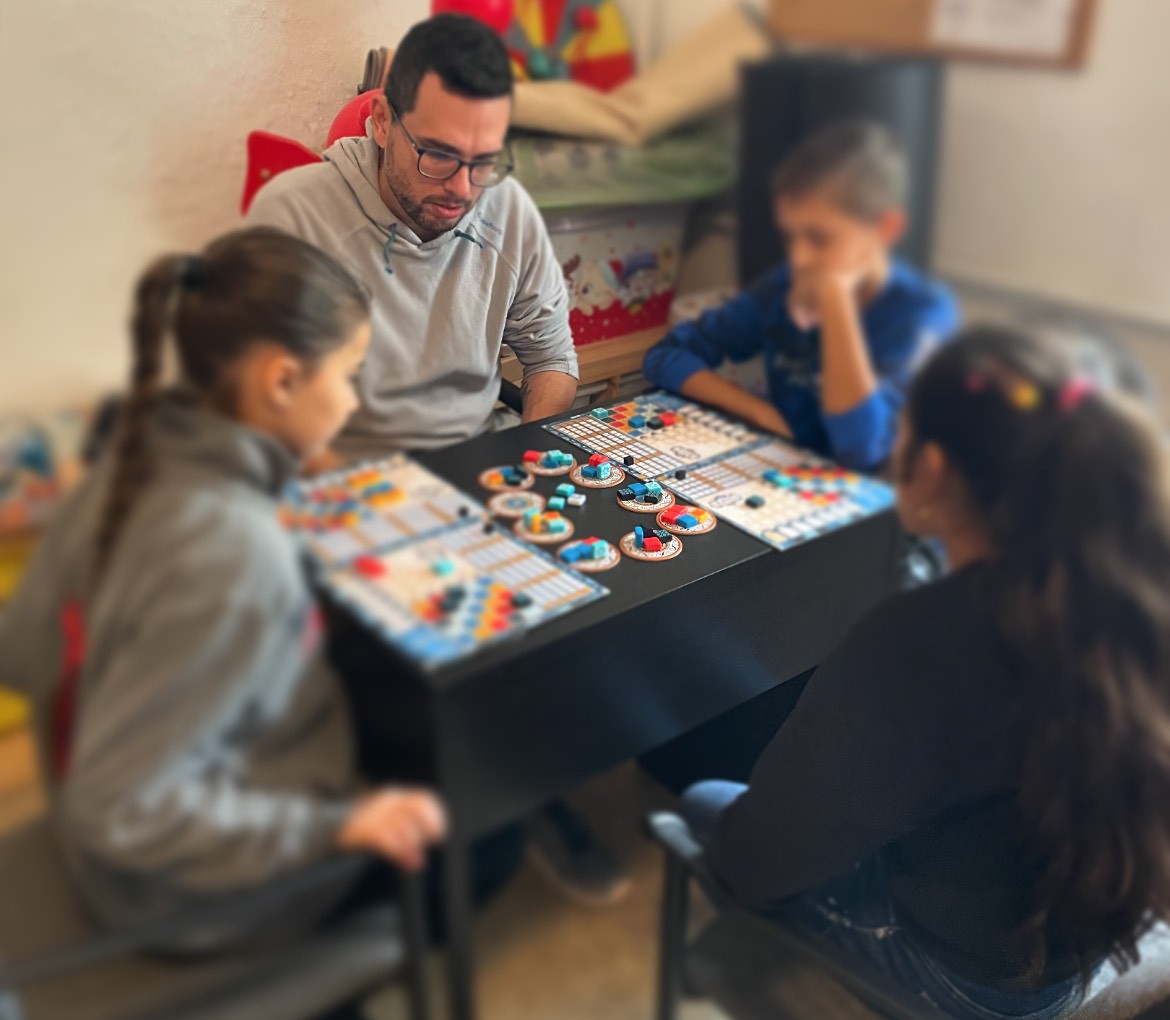

Azul
Wunderschönes Fliesenlegespiel mit strategischer Tiefe.
Tools
100 Kunstharzfliesen, 4 Spielertableaus, 9 Manufakturplättchen, 4 Punktemarker, 1 Startspielermarker, 1 Stoffbeutel.
Skills Developed
Strategisches Denken, Mustererkennung, vorausschauendes Planen.
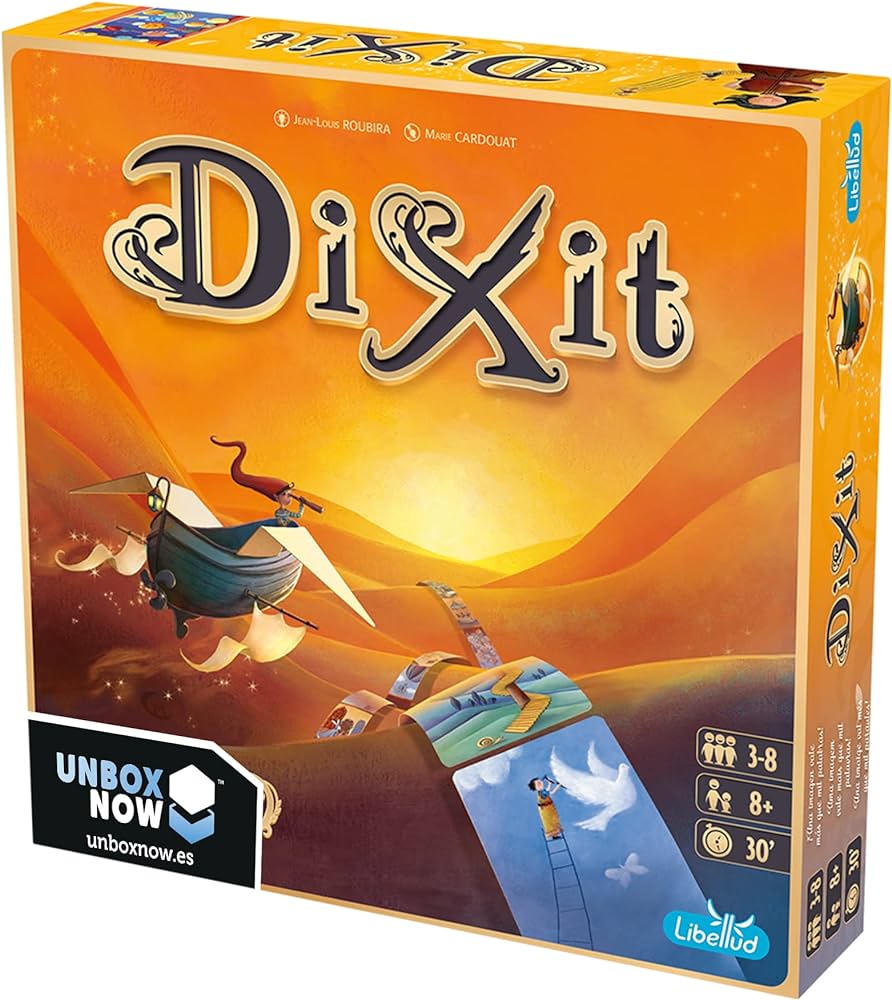
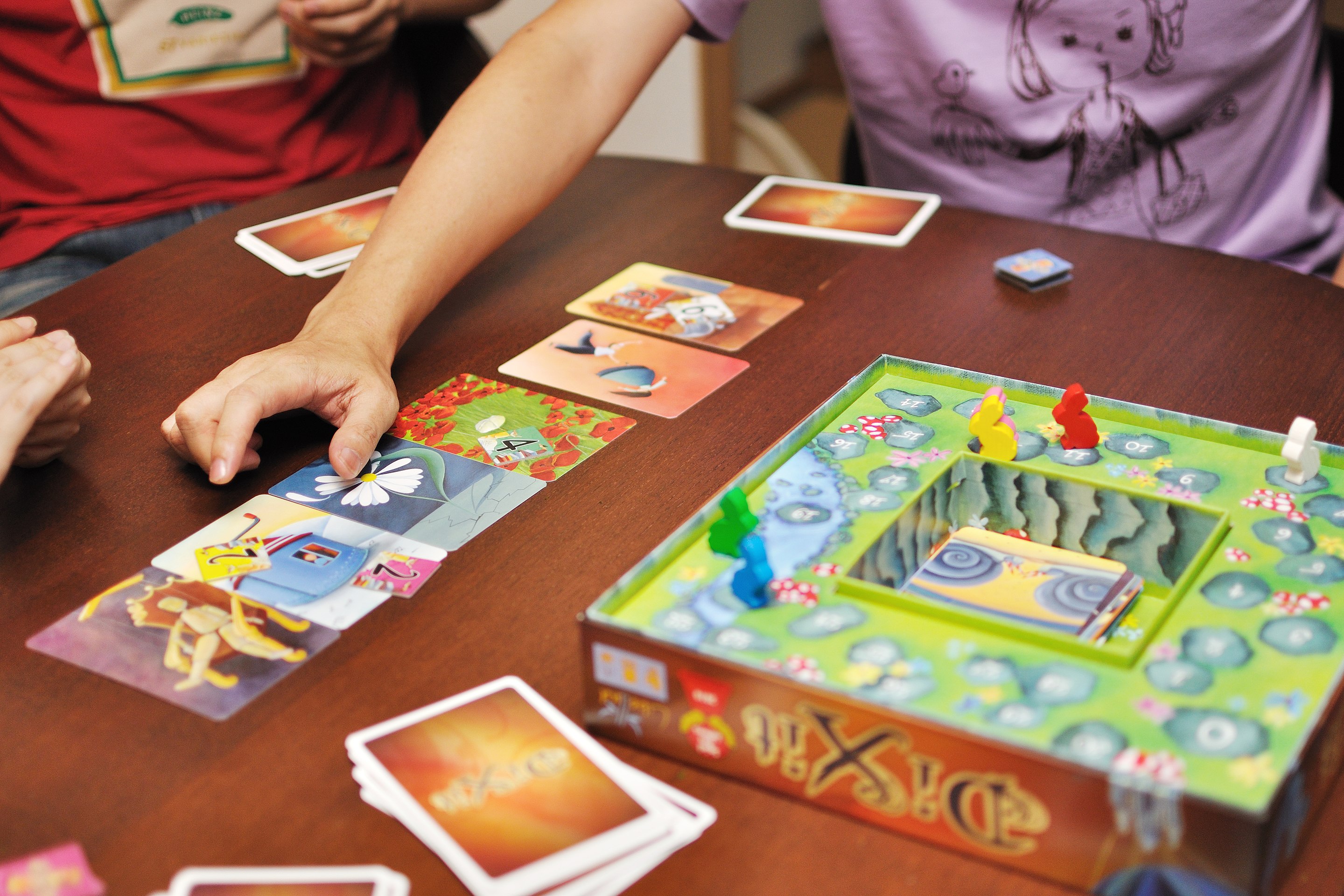
Dixit
Dixit ist ein Kartenspiel, das die Spieler einlädt, auf ihre Intuition und Fantasie zu vertrauen, um zu erraten, welche Karte der Erzähler beschreibt.
Bei Dixit ist ein Spieler pro Runde der Erzähler und denkt sich einen Satz oder eine Phrase aus, die eine seiner Karten beschreiben könnte. Dann wählt jeder Spieler eine Karte aus der eigenen Hand, die am besten zur Beschreibung passt. Nach dem Mischen und Aufdecken stimmen alle Spieler außer dem Erzähler ab, welche Karte sie für die des Erzählers halten.
Tools
Dixit enthält ein Deck mit 84 einzigartigen, wunderschön illustrierten Karten, ein Spielbrett, sechs Holzhasen als Spielfiguren und 36 Abstimmungsplättchen in sechs verschiedenen Farben.
Skills Developed
Dixit fördert Kreativität, abstraktes Denken und soziale Interaktion, da die Spieler die Geschichte hinter den Bildern interpretieren und erraten.
These games are not only fun but also help maintain cognitive abilities and offer great opportunities for building intergenerational relationships.
Personal Experiences with Board Gaming in the Family
A few years ago, I also started buying board games for my mother (now 63 years old), and I'm very proud of her because she plays a lot nowadays. She plays with her own mother (who is 82 years old), with her partner (also 63 years old), with me and my wife, and with her grandchild as well. Today, they have quite a collection on their shelf: Axio Rota, Azul, Kwatro, Punto, Qwirkle, Rummikub, Tantrix, Word Bits, Word Winder. There are also games from my collection that we've played together and they now own: Abszolút megvadult betűk (Hungarian roll and write board game), Kiwi. I think this is a pretty impressive list.
In our case, the involvement started with Qwirkle; we played it a lot, and several members of our family received it as a gift from my mother. The next success was Kwatro, and now, for over a year, Rummikub has been the game that trumps everything else. Let's take a closer look at these three games:
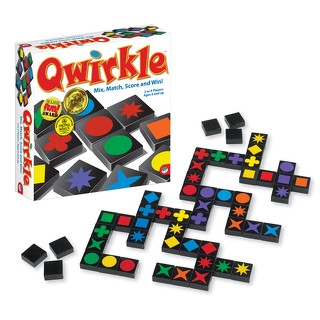
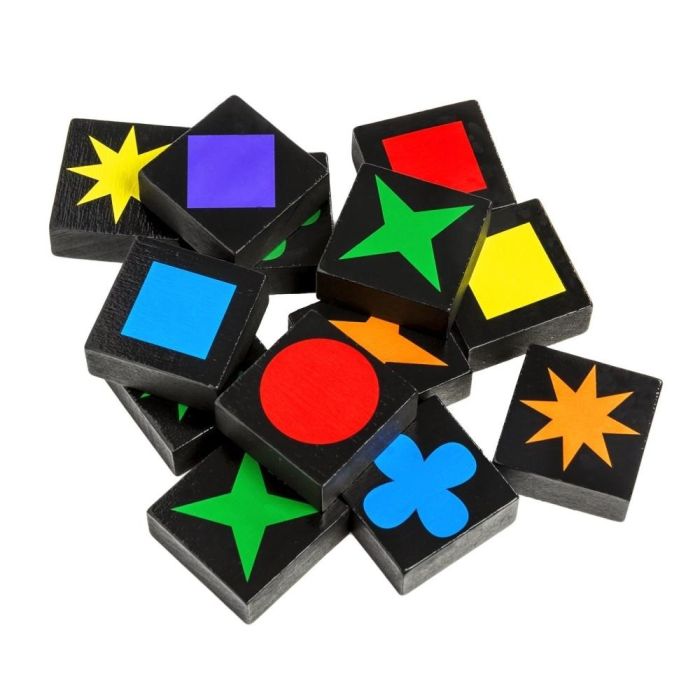
Qwirkle
Nehmen oder liegenlassen? Das ist alles – und trotzdem bringt dich jede Entscheidung ins Schwitzen.
Die Spieler legen abwechselnd Steine in ein gemeinsames Raster und ordnen sie nach Farbe oder Form in Reihen oder Spalten. Je mehr Steine in einer Sequenz liegen, desto höher die Punktzahl. Ein Qwirkle (ein vollständiges Set von sechs passenden Steinen) bringt Bonuspunkte. Der Spieler mit der höchsten Punktzahl gewinnt.
Tools
108 Holzsteine mit sechs verschiedenen Formen in sechs verschiedenen Farben.
Skills Developed
Dieses Spiel fördert Mustererkennung, strategisches Denken, räumliches Bewusstsein und Planungsfähigkeiten.
Kwatro will be featured here once we add it to our collection!
Rummikub will be featured here once we add it to our collection!
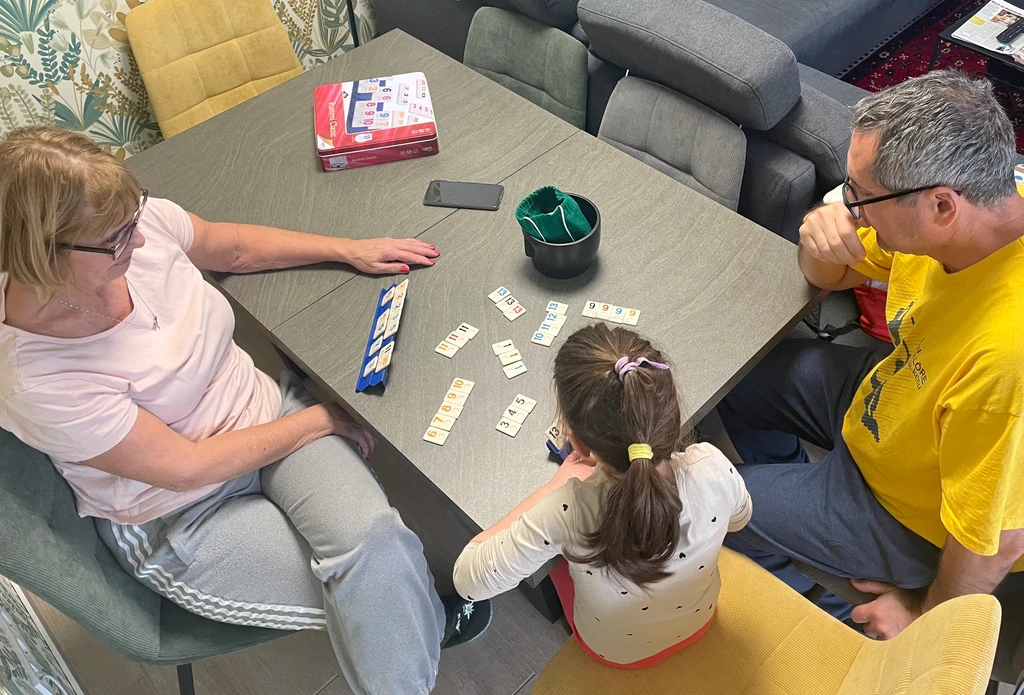
Of course, any other list can work too; these are just the games I have had good experiences with. The important thing to remember is that board games are not just for children or young adults; they're for all of us. So, if there's an older person in your family who you think would enjoy board gaming, then find a suitable game and go for it, game on!
No spam, ever. Unsubscribe anytime.
Spread the Fun of Learning!
Love our content? Show your support by sharing our page with your friends and help us inspire more families and educators with the joy of learning through play! Your shares truly make a difference. Thank you for being a wonderful part of our community!
